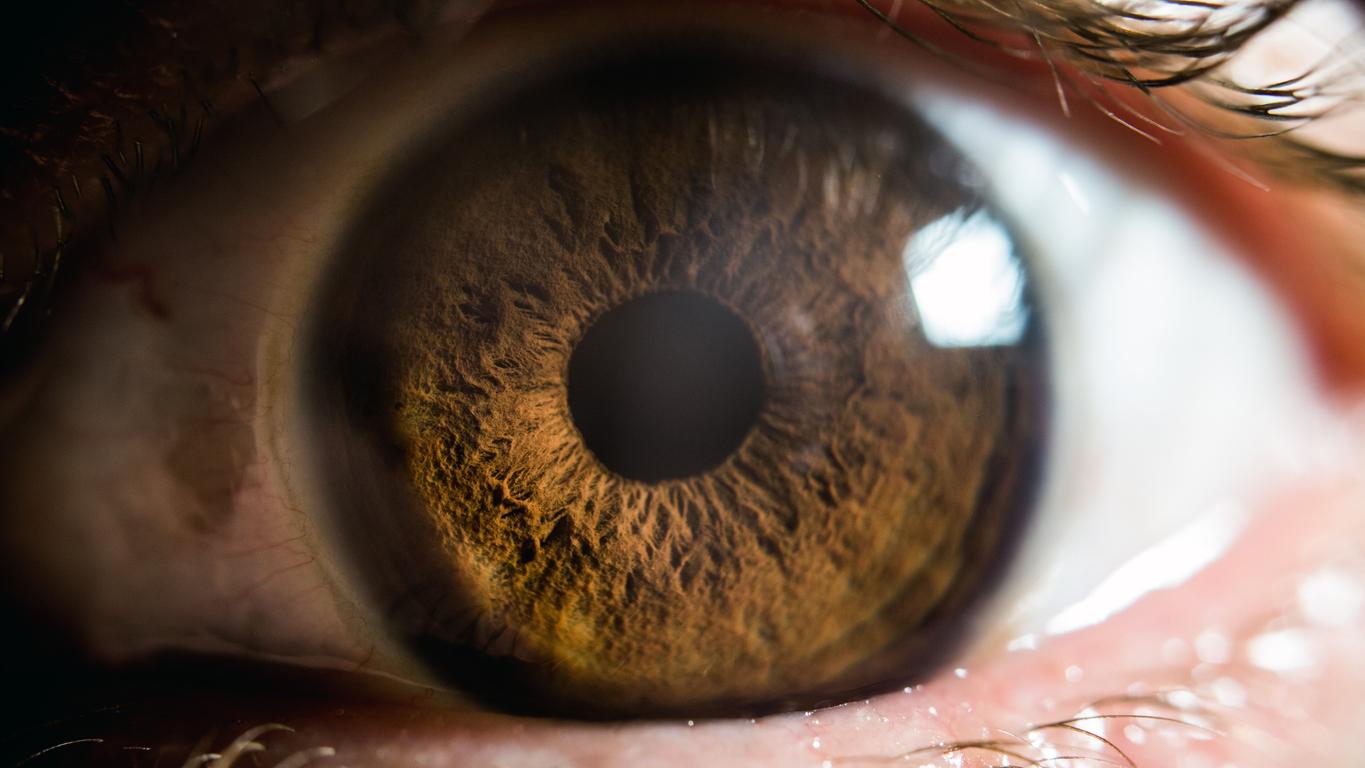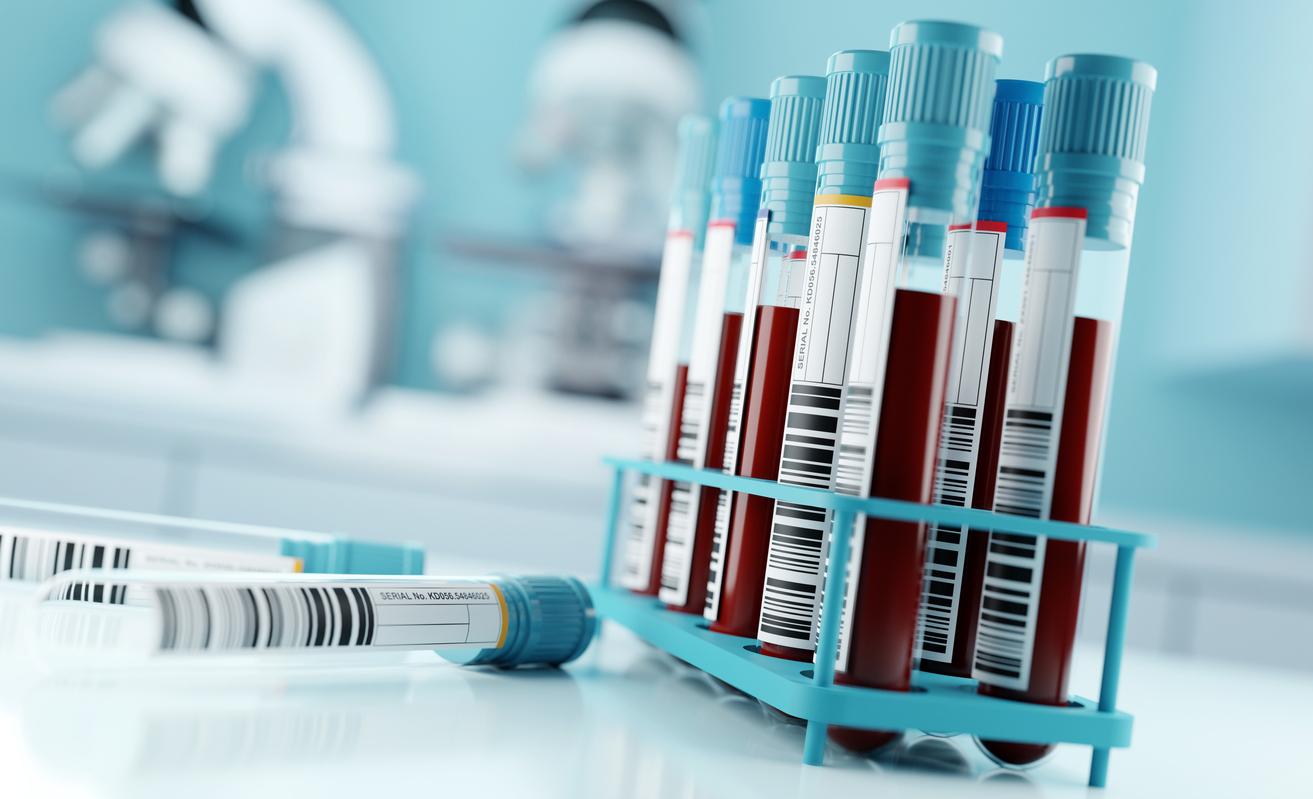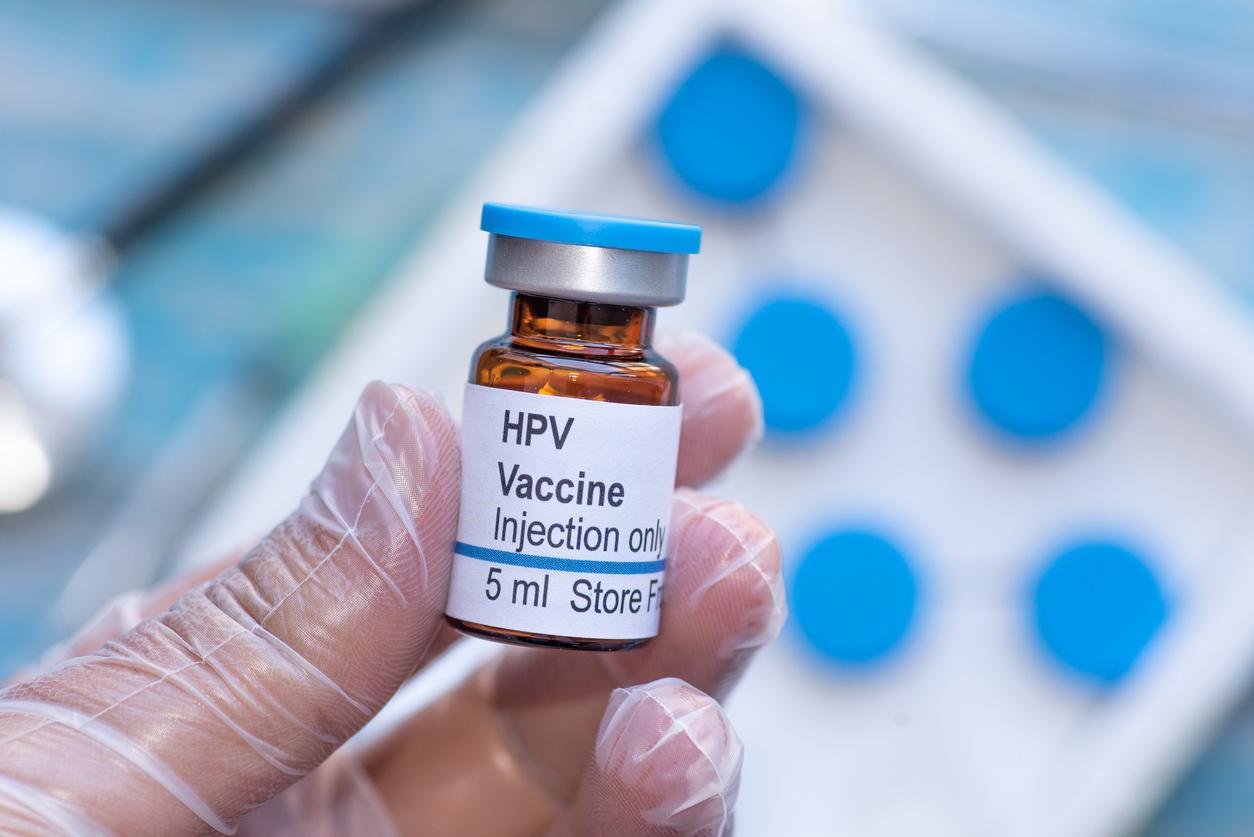A vaccine developed by French researchers would offer long-lasting production against allergic asthma, an inflammation of the bronchi.

- Asthma is characterized by inflammation of the airways.
- A team of French researchers has developed a vaccine that could offer long-lasting protection against allergic asthma.
- The Kinoid vaccine would be effective on the human IL-4 and IL-13 cytokines more than three months after its injection.
Nearly 4 million French people are affected by asthma, an inflammatory disease of the airways, according to the Pasteur Institute. Nearly 50% of these patients are affected by allergic asthma, the triggering factor of which is an allergen.
Vaccine against allergic asthma: promising results in mice
Inhaling allergens causes an overproduction of antibodies called immunoglobulin E (IgE) and proteins called “type 2 cytokines” (specifically the interleukins IL-4 and IL-13) in the airways. This phenomenon then causes a hyperreactivity of the airways as well as an overproduction of mucus during asthma attacks.
For the time being, inhaled corticosteroids are the reference drugs for controlling asthma, but these treatments do not always provide relief in cases of severe allergic asthma. A team of French researchers has therefore developed a vaccine for patients with severe asthma.
In a first study, scientists observed the effectiveness of the Kinoid vaccine in mice. “The results suggested that this vaccine induced long-lasting production of antibodies directed specifically against murine IL-4 and IL-13, as well as a reduction in the symptoms of allergic asthma in animals”can we read in a press release published by the Pasteur Institute.
Three-month effectiveness guaranteed by the Kinoid vaccine
In a second step, the researchers conducted a study to assess the effects of the vaccine on the human IL-4 and IL-13 cytokines. For the purposes of this work, they used a model of allergic asthma to house dust mites in “humanized” mice. The study’s makers replaced the genes encoding murine cytokines IL-4 and IL-13 in mice with the respective human genes.
According to the results, the administration of the Kinoid vaccine in the “humanized” mice neutralized the human cytokines IL-4 and IL-13. This protection lasted more than three years after the injection of the serum. “A vaccination against allergic asthma represents a hope for long-term treatment of this chronic disease, and beyond that, a prospect of reducing allergy symptoms linked to other factors, since this vaccine targets molecules involved in different allergies”, affirmed Pierre Bruhns, head of the Antibodies in Therapy and Pathology Unit at the Institut Pasteur.


















